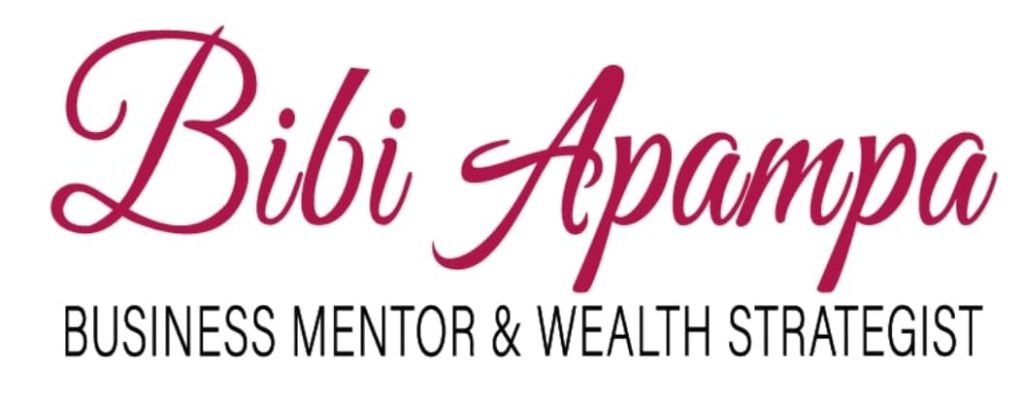Retirement can feel like the finish line after years of hard work, but it’s also the start of a brand-new journey. Understanding how to transition into retirement is crucial for making this significant life change smoother and more enjoyable. Whether you’re a few years away or just beginning to think about it, the transition into retirement can be both exhilarating and daunting. This comprehensive guide will walk you through key strategies to ensure your retirement years are fulfilling, financially stable, and downright enjoyable.
1. Financial Preparations for Retirement
1.1. Save More Money Now
Before you kick back and enjoy the beach, you’ll want to bolster your retirement savings. The earlier you start saving, the more you can benefit from compound interest. Consider increasing your contributions to retirement accounts like a 401(k) or an IRA. If your employer offers matching contributions, make sure you’re taking full advantage of that free money!
Strategies to Maximize Contributions:
- Automate Your Savings: Set up automatic transfers to your retirement accounts each payday. This makes saving effortless.
- Cut Unnecessary Expenses: Review your budget and identify areas where you can cut back. Redirect those funds into your retirement savings.
1.2. Create Passive Income Streams
Passive income can be a game-changer in retirement. Think about how you can generate income without actively working. This could include dividend-paying stocks, rental properties, or even starting an online business.
Options to Consider:
- Real Estate Investments: Investing in rental properties can provide a steady income stream. Just remember to factor in maintenance costs and property management.
- Investing in Dividend Stocks: Consider stocks that pay dividends, as they can provide regular income without requiring you to sell shares.
1.3. Align Savings with Your Goals
It’s crucial to ensure your savings align with the lifestyle you envision for your retirement. Take the time to define what that looks like for you. Will you travel extensively, downsize your home, or perhaps start a new hobby?
Adjustments for Different Objectives:
- Create a Vision Board: Visualizing your retirement goals can motivate you to save more.
- Review Your Retirement Plan Regularly: Make adjustments as needed to keep your financial goals aligned with your evolving dreams.
1.4. Pay Off Your Home
Entering retirement with a mortgage can add unnecessary stress. Aim to pay off your home before you retire. This not only frees up funds for other expenses but also gives you peace of mind.
Strategies for Paying Off Debt Early:
- Consider Extra Payments: Making additional payments toward your principal can reduce your interest over time.
- Refinance for Better Rates: If you haven’t already, look into refinancing to lower your monthly payments and pay off your mortgage sooner.
1.5. Simplify and Consolidate Accounts
With multiple accounts, keeping track of your finances can become overwhelming. Simplifying and consolidating accounts can make your financial life much easier.
Streamlining Investments and Accounts:
- Use Fewer Financial Institutions: Aim to keep your investments in fewer places to reduce paperwork and complexity.
- Consolidate Retirement Accounts: Consider rolling over old 401(k)s into an IRA for easier management.
1.6. Plan a Long-Term Budget
Budgeting isn’t just for when you’re working; it’s essential in retirement too. A long-term budget will help you manage your spending and avoid running out of money.
Creating a Sustainable Retirement Budget:
- Estimate Your Monthly Expenses: Include everything from housing to hobbies and healthcare costs.
- Factor in Inflation: Consider how inflation may impact your expenses over time.
1.7. Tips and Resources for Managing Money
Financial management becomes increasingly important in retirement. Utilize tools and resources to help keep your finances on track.
Tools and Advice:
- Budgeting Apps: Explore apps that can help you track your spending and savings.
- Consult a Financial Advisor: A professional can offer tailored advice and strategies for your unique situation.
2. Lifestyle and Emotional Planning for Retirement
2.1. Plan How You’ll Spend Your Time
Retirement offers a wealth of opportunities for how to spend your days. Planning ahead can help you avoid the common pitfall of feeling lost or bored.
Structuring Your Day-to-Day Life:
- Create a Daily Schedule: Whether it includes hobbies, volunteering, or fitness, having a routine can keep you engaged.
- Explore New Interests: Consider classes or workshops to discover new passions.
2.2. Ease into Retirement Slowly
Transitioning into retirement doesn’t have to happen overnight. Consider easing into it gradually by reducing your hours or taking on freelance work.
Benefits of Gradual Retirement:
- Less Stress: A slow transition can ease the psychological shift from work to retirement.
- Maintain Social Connections: Staying connected to colleagues can help with the emotional aspect of leaving the workforce.
2.3. Find Purpose Beyond Work
Work often provides a sense of identity and purpose. Finding new sources of fulfillment is essential for a satisfying retirement.
Exploring Hobbies and Community Involvement:
- Volunteer Opportunities: Get involved in your community to make a difference while meeting new people.
- Start a Personal Project: Whether it’s writing a book or starting a blog, pursue something that excites you.
2.4. Share a Vision with Your Partner
If you have a partner, it’s important to discuss your visions for retirement together. Alignment can help you avoid misunderstandings and ensure both partners are fulfilled.
Navigating Potential Challenges:
- Open Communication: Discuss your dreams, expectations, and potential concerns openly.
- Compromise: Be willing to adapt your plans to find common ground.
2.5. Prioritize Friends and Family
Retirement is a great time to strengthen relationships. Prioritizing friends and family can provide emotional support and enrich your life.
Tips for Staying Connected:
- Plan Regular Gatherings: Whether it’s game nights, family dinners, or outings, make time for loved ones.
- Join Social Clubs: Engage with others who share your interests, expanding your social circle.
2.6. How to Prepare for Retirement Emotionally
The emotional aspects of retirement are just as important as the financial ones. Prepare yourself for the changes you’ll experience.
Coping with the Emotional Impact:
- Acknowledge Your Feelings: It’s normal to feel a mix of excitement and anxiety.
- Seek Support: Consider talking to a therapist or joining a support group for retirees.
2.7. Identity: How Will You Introduce Yourself Post-Retirement?
Your identity may shift when you retire, and that’s perfectly okay. Reflect on how you want to define yourself during this new chapter.
Redefining Your Identity:
- Embrace New Titles: You’re not just “retired”; you could be a traveler, a volunteer, or an artist.
- Focus on Personal Growth: Explore who you are outside of your job and what that means for your future.
3. Key Decisions and Practical Steps
3.1. Retire Earlier Than Planned
If you’re considering retiring early, it’s essential to weigh the pros and cons carefully. Can you afford it? What will you do with your time?
Factors to Consider:
- Financial Readiness: Ensure your savings and investments are robust enough to support an early retirement.
- Emotional Preparedness: Be honest with yourself about whether you’re ready to leave the workforce sooner than expected.
3.2. Get the Big Decisions Right
Making major financial decisions during retirement can be overwhelming. It’s essential to approach these decisions thoughtfully.
Major Financial Choices to Consider:
- Pension Withdrawals: Understand the implications of when and how to withdraw pension funds.
- Healthcare Planning: Consider healthcare costs and options like Medicare or private insurance.
3.3. Update Your Estate Plans
Retirement is an excellent time to revisit your estate plan. Make sure everything is current to protect your legacy and loved ones.
Keeping Your Will and Trusts Up-to-Date:
- Review Beneficiaries: Ensure your accounts and policies reflect your current wishes.
- Consult a Lawyer: A legal professional can provide guidance on necessary updates.
3.4. How to Transition from Full-Time Work to Retirement
The shift from full-time work to retirement requires careful planning. Here are strategies to help you navigate this transition smoothly.
Phasing Out of Work:
- Communicate with Your Employer: Discuss your retirement plans well in advance.
- Leave on Good Terms: Focus on finishing strong to maintain relationships and preserve your professional reputation.
3.5. How to Transition into Early Retirement
For those considering early retirement, it’s crucial to ensure you’re making a well-informed decision.
Special Considerations:
- Health Insurance: Understand your options for healthcare coverage if you retire before age 65.
- Budget Adjustments: Early retirees may need to adjust their budgets to accommodate a longer retirement period.
4. Finding Fulfillment in Retirement
4.1. Have Fun and Get Creative
Retirement should be about enjoying life and exploring creativity. Don’t be afraid to indulge in activities that bring you joy!
Ideas for Hobbies and Projects:
- Arts and Crafts: Try painting, pottery, or crafting to express yourself artistically.
- Travel: Explore new places and cultures; consider long-term travel or RV living.
4.2. Focus on Physical Health
Your health should remain a priority during retirement. Staying active will help you enjoy your retirement years to the fullest.
Tips for Staying Fit:
- Regular Exercise: Incorporate activities you love, such as walking, swimming, or yoga.
- Healthy Eating: Focus on a balanced diet to maintain your overall health.
4.3. Consider Lifelong Learning
Retirement is an excellent opportunity for personal development. Keep your mind sharp and engaged by pursuing lifelong learning.
Where to Learn:
- Online Courses: Platforms like Coursera or MasterClass offer courses on a variety of subjects.
- Community Education: Check out local colleges for classes on topics that interest you.
4.4. Embrace Volunteering
Volunteering is a rewarding way to give back to your community while staying active and socially connected.
Opportunities for Giving Back:
- Local Nonprofits: Research organizations in your area where you can lend a hand.
- Mentoring: Share your expertise by mentoring young professionals or students.
4.5. Travel and Explore
If travel is on your retirement wishlist, start planning now! Create a bucket list of destinations you want to explore.
Travel Tips:
- Plan Ahead: Look for deals and plan your trips during off-peak times to save money.
- Be Open to New Experiences: Don’t hesitate to try new cultures, cuisines, and activities.
4.6. Build New Friendships
Retirement can lead to a shift in your social circle. Building new friendships can help you navigate this change.
Ways to Make New Friends:
- Join Clubs or Groups: Participate in activities you enjoy, such as book clubs or hiking groups.
- Attend Local Events: Check community calendars for festivals, fairs, and other social gatherings.
5. Finding Fulfillment in Retirement
5.1. Have Fun and Get Creative
Retirement should be a time to rediscover joy and unleash your creativity! Embrace hobbies that ignite your passion and allow you to express yourself.
Ideas for Hobbies and Projects:
- Arts and Crafts: Whether it’s painting, pottery, or scrapbooking, engaging in artistic activities can be incredibly fulfilling. Consider taking a class to enhance your skills and meet new people.
- Gardening: Create a beautiful garden space that not only beautifies your home but also provides you with fresh fruits and vegetables. Gardening can be therapeutic and rewarding!
- Writing: Start a blog, write memoirs, or even craft poetry. Documenting your life experiences can be both cathartic and inspiring for others.
5.2. Focus on Physical Health
Your health should remain a top priority during retirement. Staying active not only keeps your body fit but also enhances your mental well-being, allowing you to enjoy every moment.
Tips for Staying Fit:
-
- Regular Exercise: Choose activities you love, such as walking, swimming, or yoga. Consider joining a local gym or fitness class to stay motivated and meet new friends.
- Healthy Eating: Focus on a balanced diet rich in fruits, vegetables, lean proteins, and whole grains. Cooking at home can be a fun way to explore new recipes while ensuring you eat healthily.
- Mindfulness and Relaxation: Incorporate mindfulness practices such as meditation or tai chi to improve mental clarity and reduce stress.
5.3. Consider Lifelong Learning
Retirement is the perfect time for personal development. Keeping your mind sharp and engaged is vital for a fulfilling life.
Where to Learn:
- Online Courses: Platforms like Coursera, Udemy, or MasterClass offer a plethora of courses on everything from history to cooking. Dive into subjects you’ve always wanted to explore.
- Community Education: Many local colleges offer classes specifically designed for seniors. This is a fantastic way to learn something new while also meeting people with similar interests.
5.4. Embrace Volunteering
Volunteering provides a wonderful opportunity to give back to your community while keeping you active and socially connected.
Opportunities for Giving Back:
- Local Nonprofits: Research organizations in your area where you can lend a hand, whether it’s at a food bank, animal shelter, or community garden.
- Mentoring: Share your expertise and life experiences by mentoring young professionals or students. Your knowledge can make a significant difference in their lives.
5.5. Travel and Explore
If travel is on your retirement wishlist, start planning now! This is the perfect time to fulfill those dreams and explore the world.
Travel Tips:
- Create a Bucket List: List the destinations you want to explore. Whether it’s a trip to Europe or a road trip across the country, having a plan can make it exciting.
- Plan Ahead: Look for deals and book your trips during off-peak times to save money.
- Be Open to New Experiences: Embrace different cultures, cuisines, and activities. Traveling can provide fresh perspectives and enrich your life.
5.6. Build New Friendships
Retirement often leads to a shift in your social circle. Building new friendships can significantly enhance your quality of life.
Ways to Make New Friends:
- Join Clubs or Groups: Participate in activities you enjoy, such as book clubs, gardening groups, or hiking clubs. Shared interests can foster meaningful connections.
- Attend Local Events: Keep an eye on community calendars for festivals, fairs, and social gatherings. Engaging with your community can help you meet new people and strengthen local ties.
6. Planning for a Satisfying Retirement
6.1. Set Clear Goals
Setting clear goals for your retirement can provide direction and motivation.
Goal-Setting Strategies:
- Identify What You Want: Think about what you want to achieve during retirement. Is it traveling more, spending time with family, or developing a new skill?
- Create a Vision Board: Visualizing your goals can make them feel more attainable. Include images and words that inspire you.
6.2. Develop a Retirement Budget
Creating a retirement budget is crucial to ensure your financial health.
Budgeting Tips:
- Track Your Expenses: Keep a close eye on your spending. Consider using budgeting apps to help manage your finances effectively.
- Factor in Healthcare Costs: As you age, healthcare becomes increasingly important. Make sure to budget for medical expenses and insurance premiums.
6.3. Explore Passive Income Streams
Generating passive income can provide financial security during retirement.
Passive Income Ideas:
- Real Estate Investments: Consider renting out properties or investing in real estate funds.
- Dividend Stocks: Invest in dividend-paying stocks for regular income. Consult a financial advisor to develop a sound investment strategy.
6.4. Prioritize Friends and Family
Nurturing relationships with family and friends is essential for emotional well-being.
Ways to Stay Connected:
- Plan Regular Gatherings: Host family dinners or game nights to maintain strong bonds.
- Stay in Touch: Use technology to your advantage—video calls, social media, and messaging apps can help you stay connected, no matter the distance.
6.5. Adjusting to Retirement Life
Transitioning into retirement can be an adjustment period. Here are a few strategies to make it smoother:
- Establish a Routine: Create a daily schedule that includes time for hobbies, exercise, social activities, and relaxation.
- Stay Open to Change: Embrace the flexibility of retirement, and don’t hesitate to try new things. This can lead to exciting adventures!
Mastering How to Transition Into Retirement for a Fulfilling Next Chapter
As you reflect on how to transition into retirement, remember that this phase of life is filled with opportunities for growth, adventure, and fulfillment. By following these 11 key steps, you can prepare yourself for a smooth and enjoyable transition into this exciting new chapter.
If you’re looking for personalized advice or strategies tailored to your specific situation, consider booking an appointment with Bibi Apampa, a seasoned expert in retirement planning. With her guidance, you can navigate the complexities of retirement with confidence and clarity. Embrace the future with optimism—your best years are just beginning!



